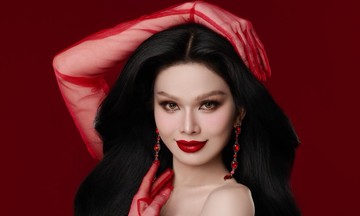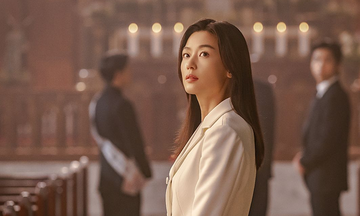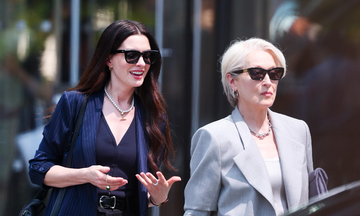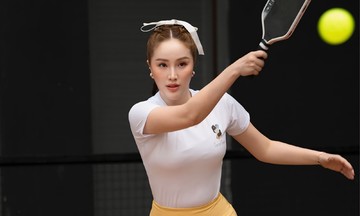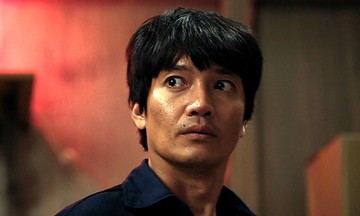Xuan Phuong, 96, spoke about the significance of the ao dai to herself and Vietnamese women in general at the "Vietnamese Ao Dai - An Enduring Legacy" seminar in Ho Chi Minh City on 19/9. During her youth in Da Lat, the director had the opportunity to meet Empress Nam Phuong and was once invited to the empress's residence for lunch with the princes and princesses.
A long dining table was set for 7-8 people. When everyone was seated, a servant opened the main door for the empress to enter. Xuan Phuong saw a woman wearing a five-panelled Hue yellow ao dai with a matching yellow head wrap.
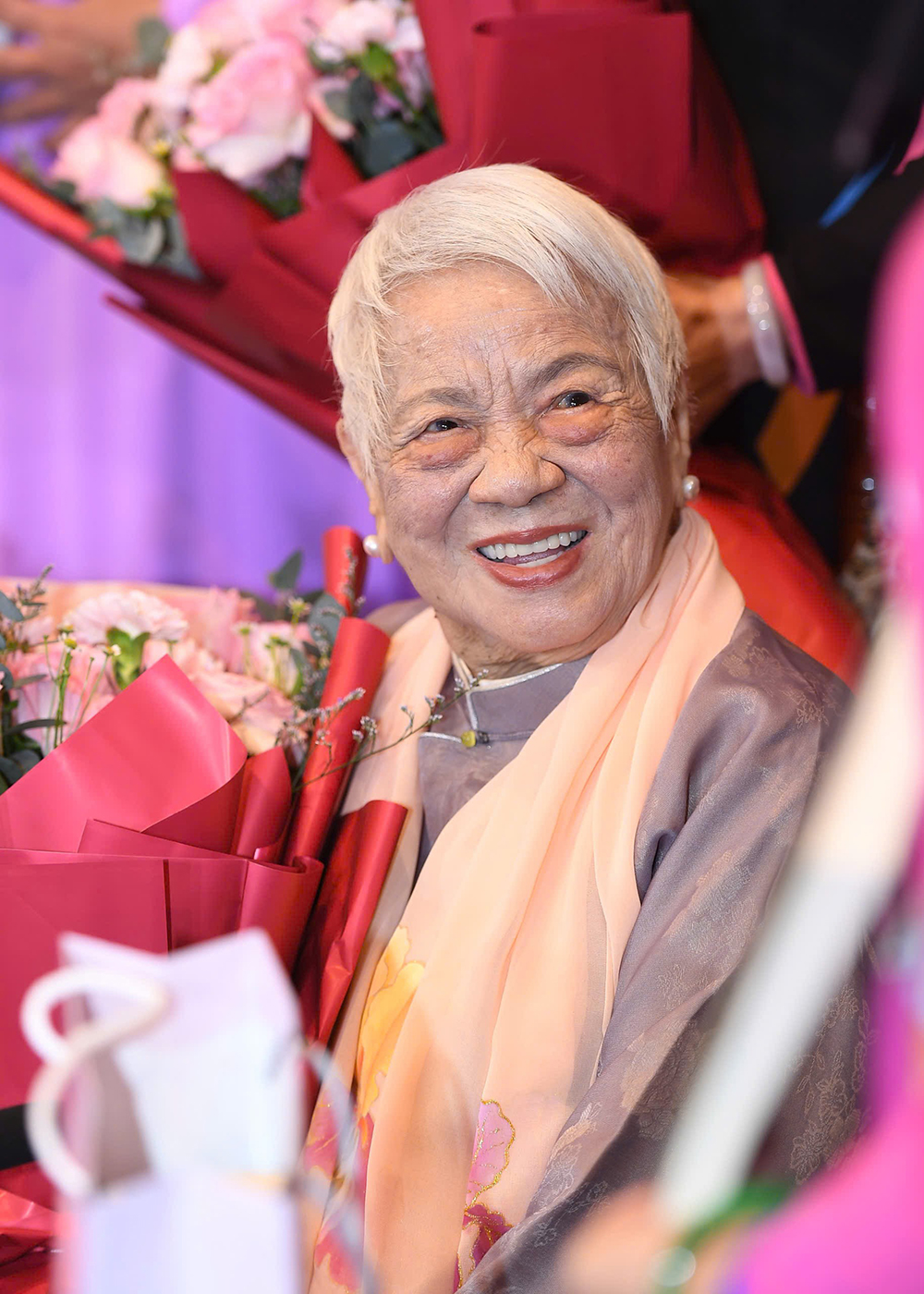 |
Director Xuan Phuong at the seminar organized by the Vietnamese Ao Dai Heritage Club in Ho Chi Minh City. Photo: Nguyen A |
Director Xuan Phuong at the seminar organized by the Vietnamese Ao Dai Heritage Club in Ho Chi Minh City. Photo: Nguyen A
The princes and princesses stood when the empress entered. At the table, she guided her children on using French dining utensils, demonstrating a strict upbringing. While the formalities and rituals were impressive, what resonated most with Xuan Phuong was the empress's dignified appearance in her ao dai during an ordinary lunch at home.
Empress Nam Phuong, whose birth name was Nguyen Huu Thi Lan, was the daughter of a wealthy landowner in Da Lat and attended the Couvent des Oiseaux school in Paris. Upon returning to Vietnam and becoming empress, she admired the school's educational approach. She donated 12 hectares of ancient pine forest near Cam Ly Waterfall to establish a similar school in Da Lat. The teachers were nuns with educational backgrounds ranging from bachelor's to doctoral degrees from Paris. The students were children of French officials and plantation owners working in Vietnam. Xuan Phuong was one of about 300 students at the Couvent des Oiseaux, Da Lat, which she often referred to as the White Dove School.
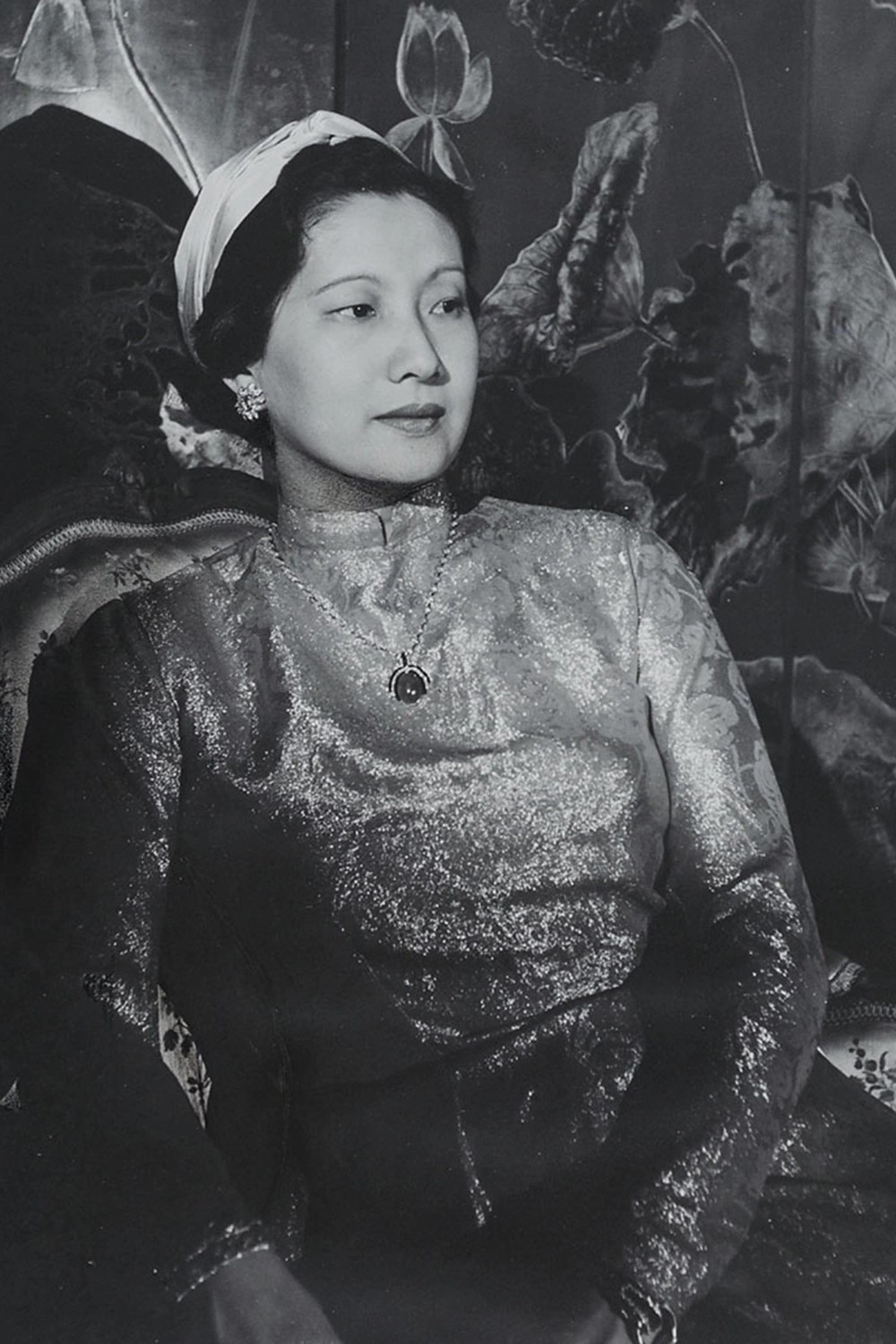 |
Empress Nam Phuong (1913-1963). Photo: Hamburg Museum |
Empress Nam Phuong (1913-1963). Photo: Hamburg Museum
After leaving Da Lat for Hue, Xuan Phuong observed the gentle elegance of the women in the imperial city, where even tofu, fish, and vegetable vendors wore ao dais in public, as did female students like herself. When war came, she and her friends put away their ao dais with heavy hearts, unsure when they would wear them again.
In 1945, at the age of 16, she joined the Viet Minh and participated in the resistance. During the wars against the French colonialists and the American imperialists, she held various roles: explosives technician, medic, reporter, interpreter, and pediatrician. From 1967 to 1968, she served as an interpreter and hosted an international film crew, including Joris Ivens and Marceline Loridan, while they filmed "17th Parallel: People's War" in Vinh Linh. This marked a turning point, leading her to become a war correspondent, and she was present at the Independence Palace on 1/5/1975.
Having lived through historical upheavals and personal trials, Xuan Phuong remained deeply attached to the ao dai and the identity of women in the 20th century. At 72, she wrote her memoir in French, "Ao Dai - From the White Dove School to the Viet Minh War Zone." The book was acclaimed and became a bestseller in France.
The author titled the book "Ao Dai" because she felt it best encompassed her message. She said, "At the time I was living in France, and I thought I needed to write in a way that foreigners could understand the fate of a Vietnamese woman in the early 20th century. How did such a woman live through those wars?"
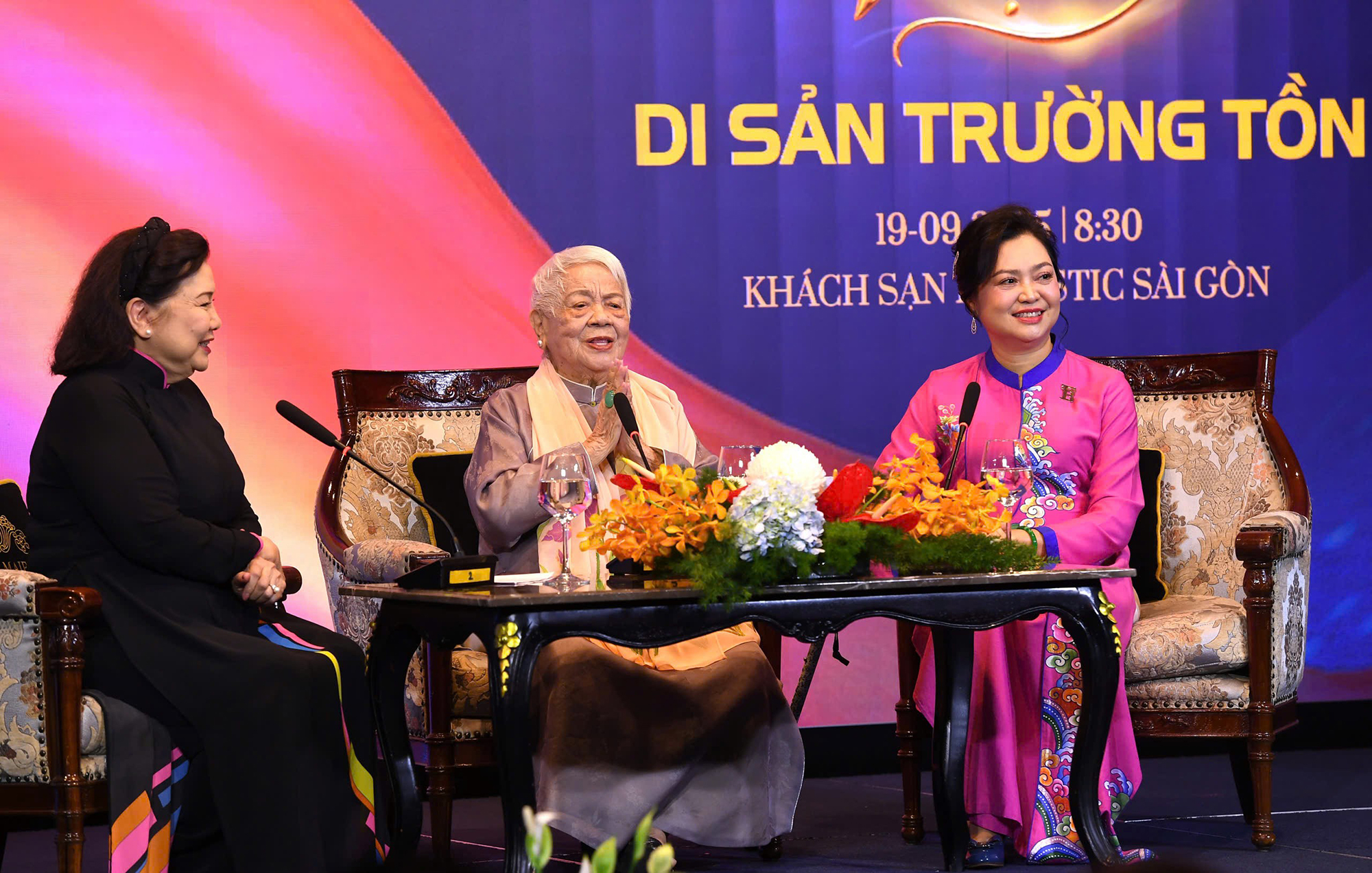 |
From left: Doctor, psychologist Ly Thi Mai, Xuan Phuong, President of the Vietnamese Ao Dai Heritage Club in Ho Chi Minh City Phung Thi Thu Thuy at the event. Photo: Nguyen A |
From left: Doctor, psychologist Ly Thi Mai, Xuan Phuong, President of the Vietnamese Ao Dai Heritage Club in Ho Chi Minh City Phung Thi Thu Thuy at the event. Photo: Nguyen A
For her, the ao dai represents pride, embodying both the modesty and gentleness, as well as the strength and resilience of Vietnamese women. Even in the darkest of times, beauty endures.
After the memoir's release, she received a letter from a French female reader. The reader explained that since retiring, her husband had stayed home and rarely seemed happy. The wife gave her husband "Ao Dai" to read. The next day, she was surprised to see him watering the garden, humming a tune. He thanked his wife for giving him the book, saying it helped him rediscover his zest for life.
Nghinh Xuan






